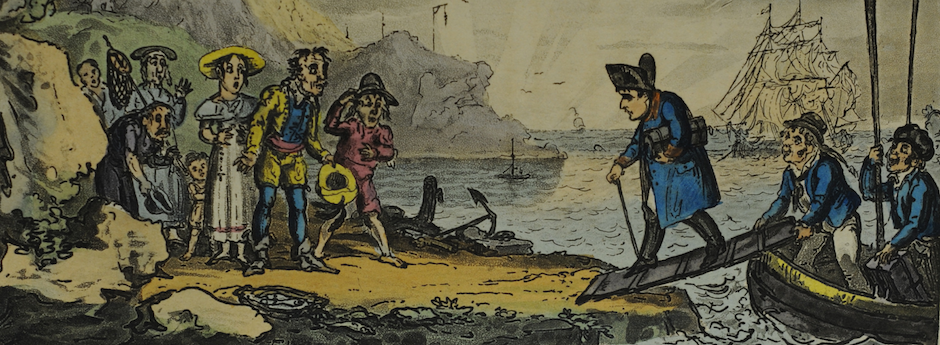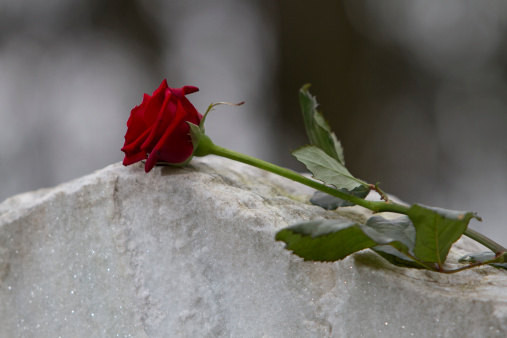My typical Sunday morning is usually divided between posting and responding to your comments and emails and reading the New York Times. I then turn my attention to the variety puzzle in the Sunday Times Magazine.
But early last Sunday morning, I was stopped dead in my tracks by the obituary notices. A photograph of a beautiful, young, blonde woman caught my eye. I didn’t know her, but her looks were striking- as was her age.
Only twenty-seven.
But something about her face rang a far-off bell, and in the split second before I read her name, I knew exactly who she was.
A daughter of a friend of mine from Aspen.
My morning just fell apart. I was lost for the rest of the day.
This is the post I never wanted to write. This is the post you really don’t want to read.
This is the post about what do you say to people who have lost a child?
Oh God. Just writing that sentence makes me flinch. I don’t have the words to meet this subject head-on and yet I won’t be able to get on with my blogging life until I address it.
We all know someone who has suffered this tragedy. I’ve had friends and family who have lost children to illness, suicide, drug overdoses, accidents. It’s the same heart-wrenching, horrible shock every time you hear about it.
And I never know what to say to them.
Of course I say, “I’m sorry.” I am. Profoundly.
But what I really always want to say is “How do you find the strength to keep going? What keeps you alive and sustains you in the midst of such terrible pain? Do you find comfort in God? Or prayer? Or your spouse? Or your other children?
Does it ever get better? Do you ever laugh again? Feel hungry again? Feel joy?
And do you feel guilty when you do?
How do you ever go to the movies- or a ball game? What do you feel when you go to other people’s kids’ birthday parties? Weddings? Christenings?
How do you go on?
I want you know that I think you are brave. I want you to know that I never want to feel your pain. I want you to know that you are my hero.
And what can I do to help? Can I do anything at all?”
But I never have the courage to say any of these things.
Sometimes, I have to admit, when I run into people in this terrible demographic, it’s the first thing I think about when I see them. And I feel guilty for having the thought.
It’s survivor’s guilt, I think. My children are alive and married. Some day they will have kids of their own.
They didn’t die before they had a chance to grow up.
And, though I know that there is no statute of limitations on how long you worry about them, we all made it through their most vulnerable time- their teen years- fairly unscathed.
I was just plain lucky. And I know it. There were no bad acid trips, or car accidents or crippling mental illnesses to worry about. Or leukemia or lymphoma or any of hundreds of other horrible things that can befall a family.
Not special. Not immune.
Just lucky.
My Aspen girlfriend and her beautiful daughter were not.
And I’m so sorry.
God grant my friend all the courage that she will need to face the future.
And give me the wisdom and compassion to say the right things.
Out loud this time.
Amen.



I’m sorry is the best thing to say. Be there for your friend, just be there. The questions you have must remain questions unless you are the parent’s shoulder and the parent chooses to share these concerns with you. Parents torn apart by pain and grief can’t answer the questions, shouldn’t have to put their thoughts in places that haven’t yet considered, and only learn to live their new lives one day at a time. At first, absolutely every moment is hard. Yes, weddings are hard, and announcements of your friends’ newly expected grandchildren, and the every little thing that reminds you of what you child is missing. And whatever you do, avoid making any assumptions about the parent’s religious beliefs and the platitudes which come from that. An acquaintance who belongs to this unenviable club recently posted an article on Facebook about what to say and do, and a very good friend whose husband died young and I have talked about writing a book about what not to say. It’s a situation which makes everyone uncomfortable. The book has probably already been written, but every time someone says the wrong thing, we are reminded.
Thank you for responding today, Judy. I thought about you and your daughter and I hesitated about posting this. I didn’t want to add to your burden. But until I wrote about this, I couldn’t write about the other not-so-significant matters that make up most of our daily lives. Your common sense and wisdom here is invaluable to me. And I’m sure my other readers will find them helpful as well. Write the book. People need a guide and you would be doing them all a great service.
I have thought about this many times both in my private life and having worked in an intensive care unit for over 20 years. “Why do bad things happen to good people” has remained an enigma to me as much today as it has been when my mother died at the age of 36. No religious, philosophical, or ethical discussion of this topic was ever satisfying to me or gave me any comfort. My grandmother, when asked how was she doing, always answered in Yiddish, ” I live and I suffer.” Surely, an answer that I couldn’t live with. I only keep coming back to the same quote when I see tragedy around me “There but for the grace of God go I.” It gives me strength and comfort in my life and the courage to tell those undergoing some loss that I am truly sorry for them.
Your empathy makes you a great doctor, a great friend and a mensch. That’s why we love you. Thanks, Jimmy.
When I was 8 years old, my mother told me that there is nothing worse then losing a child.The pain, not memory lasts a lifetime. When my mother passed on, we found a lock of my sister’s hair in a small envelope my mother carried in whatever purse she happened to be carrying on whatever day. So when my mother said that to me, it was with great pain and loss. Nothing tougher. Allan
I’m sorry, friend. What a sad thing for your mother – and your whole family- to bear. And I understand why she carried that envelope with her all those years. Just tragic. Thanks for sharing your story today.
Ellen,
Other posts from you have been longer, some funnier, some quite thoughtful. But, none so meaningful and spot-on as this one.
Thanks, Bernie. Not just for the kind words but for giving me the courage to post something on a topic like this. I knew you’d stick with me. Much appreciated.
Beautifully written my dear old friend Ellen and my dear old friend Judy.
I get teary eyed thinking of how innocent we all were one day when our only worry was what we were going to play that day. Being a grown up is so hard & the horrific tragedy of losing a child matches no other in this world. My heart aches for you , Judy, and all others in your situation. You’ve channeled your sorrow in so many positive ways. You are quite an inspiration.xxxoooo
Thank you, neighbor, for chiming in here. I have nothing to add to your comment. It’s perfect as is.
There is a fabulous book “The Grief Recovery Handbook” written by two men. One author lost a child and the other was divorced I believe. There’s a section describing what not to say to those that are mourning.
Decades ago I read Helen Hayes life story. She had a daughter who died young. When asked about the pain of the child’s death, she reported that the true loss would have been in not having her for the time she did. The grace and dignity in her response plus the spin she put on the grief has always gotten me through my own grief.
Yes, Mary MacArthur was only sixteen when she died of polio. So sad. But you’re right. Her mother’s response was beautiful and so true. Thanks, Jackie. I’m going to buy that book. Life’s terrible moments need an owner’s manual.